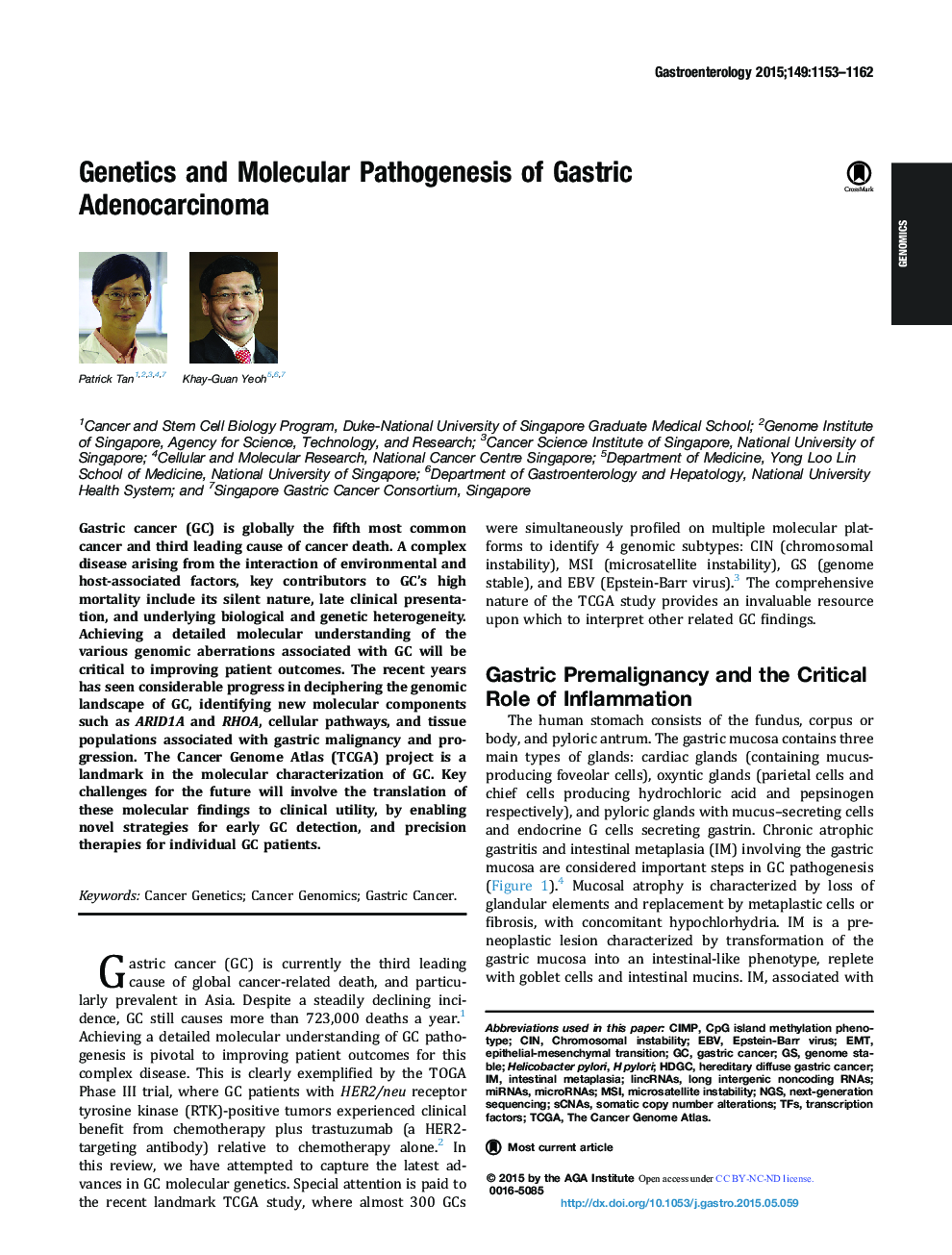| Article ID | Journal | Published Year | Pages | File Type |
|---|---|---|---|---|
| 6092782 | Gastroenterology | 2015 | 13 Pages |
Gastric cancer (GC) is globally the fifth most common cancer and third leading cause of cancer death. A complex disease arising from the interaction of environmental and host-associated factors, key contributors to GC's high mortality include its silent nature, late clinical presentation, and underlying biological and genetic heterogeneity. Achieving a detailed molecular understanding of the various genomic aberrations associated with GC will be critical to improving patient outcomes. The recent years has seen considerable progress in deciphering the genomic landscape of GC, identifying new molecular components such as ARID1A and RHOA, cellular pathways, and tissue populations associated with gastric malignancy and progression. The Cancer Genome Atlas (TCGA) project is a landmark in the molecular characterization of GC. Key challenges for the future will involve the translation of these molecular findings to clinical utility, by enabling novel strategies for early GC detection, and precision therapies for individual GC patients.
